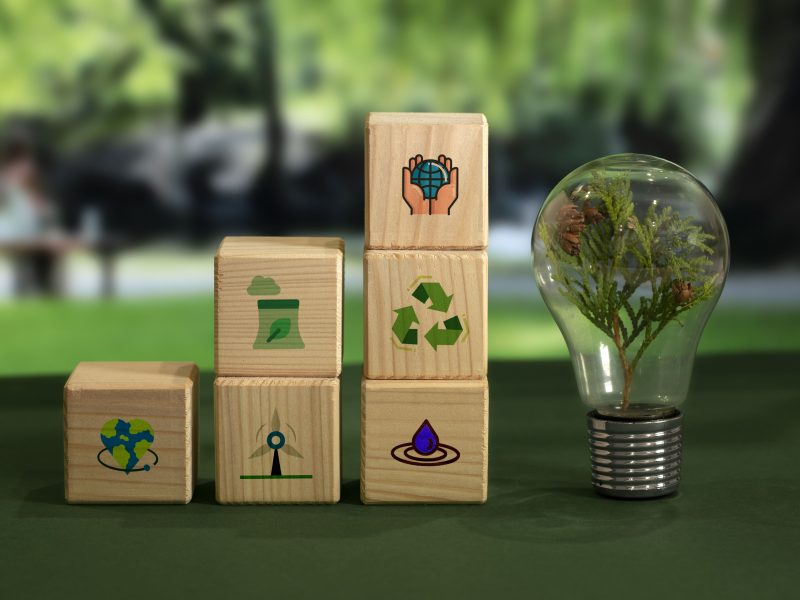
In the scorching heat of summer, let’s embark on a journey towards a greener and more sustainable season. “Zero-Waste Summer: Reduce, Reuse, and Recycle for an Environmentally-Friendly Season” guides you on a path of mindful living, offering simple and practical tips to minimize waste, repurpose items, and protect our planet. As a beginner homeowner, you can adopt simple and eco-friendly practices to enjoy a sustainable summer. Join us as we embrace eco-conscious choices, creating a summer that leaves behind nothing but good memories and a healthier environment for generations to come.
1. Reduce
Reduces refers to the practice of minimizing the amount of waste we generate in the first place. It involves being mindful of our consumption habits and making conscious choices to use fewer resources and products that may eventually end up in landfills or harm the environment. Here are some practical ways to reduce waste during the summer:
- Single-Use Plastics : Avoid single-use plastics such as straws, plastic bags, and disposable cutlery. Instead, invest in reusable alternatives made from materials like stainless steel, glass, or bamboo.
- Food Waste ; Plan your meals and buy only what you need to reduce food waste. Use leftovers creatively or compost organic scraps to divert them from landfills.
- Bottled Water : Carry a reusable water bottle with you instead of buying bottled water. It saves money and reduces plastic waste.
- Packaging : When shopping, choose products with minimal or eco-friendly packaging. Look for items with recyclable or compostable packaging.
- Energy Consumption : Be mindful of your energy use by turning off lights and electronics when not in use. Opt for energy-efficient appliances and consider natural lighting during the day.
- Paper Waste : Reduce paper waste by opting for digital communications and using both sides of the paper when printing.s
- Disposable Products : Replace disposable items like paper plates, napkins, and cups with reusable alternatives for picnics and gatherings.
- Bulk Buying : Purchase items in bulk to reduce excessive packaging and save money in the long run.
- Unsubscribe : Unsubscribe from unnecessary mailing lists to reduce paper waste from junk mail.
- Repairs and Upcycling : Instead of immediately discarding broken items, try repairing or upcycling them into something new and useful.
2. Reuse
Instead of throwing things away after one use, find ways to use them again. For example, you can repurpose old glass jars as storage containers or turn cardboard boxes into DIY organizers. Get creative and give new life to items you might have otherwise thrown out.
3. Recycle
Recycling is when you send certain materials like paper, plastic, and glass to special facilities where they’re processed and turned into new things. Separate recyclable items from your regular trash and put them in the recycling bin. Recycling helps reduce the amount of waste that goes to landfills.
4. Eco-Friendly Shopping
Look for products that have minimal packaging or packaging made from eco-friendly materials. Avoid buying items with excessive plastic packaging that might end up in the trash. Choose products with recyclable or compostable packaging when possible.
5. Energy-Efficient Choices
Save energy by turning off lights, electronics, and appliances when you’re not using them. Use energy-efficient light bulbs and appliances that use less electricity. This helps reduce the amount of energy we need to produce, which is better for the environment.
6. Sustainable Gardening
Composting is a way to turn food scraps and other organic waste into nutrient-rich soil for your garden. It reduces the amount of waste sent to landfills and helps your plants grow healthier.
7. Water Conservation
Be mindful of how much water you use. Fix leaks in faucets, water your plants early in the morning or late in the evening to prevent evaporation, and consider using a bucket instead of a hose to wash your car.
8. Zero-Waste Events
When hosting gatherings or parties, use reusable plates, cups, and utensils instead of disposable ones. Encourage guests to bring their own containers to take home leftovers, so you generate less waste.
9. Donating and Thrifting
Instead of throwing away items you no longer need, donate them to charities or thrift stores. It gives someone else a chance to use them, and you help reduce waste.
10. Mindful Cleaning
Use eco-friendly cleaning products to avoid harsh chemicals that can harm the environment. Consider making your own cleaning solutions using natural ingredients like vinegar and baking soda.
By following these simple steps, you can have a more environmentally-friendly summer, where you produce less waste and contribute to a cleaner and greener planet. Each small action makes a difference and helps create a more sustainable lifestyle for everyone.
Find related articles:
How to Choose Eco-Friendly Tile Options for Homeowners
How to Make DIY Hydroponic Garden at Home
Energy Saving Tips During Summer

Comments